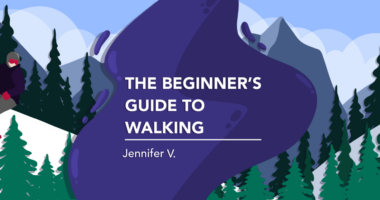The Importance of Health Literacy

When we are diagnosed with neuromyelitis optica (NMO), it can feel like we’re being pushed into the deep end of the pool and left to sink or swim on our own. Navigating a whole new life with a rare disease can be confusing and overwhelming. Part of that feeling comes from having to make health decisions that we may be totally unprepared for. No one gives us a guide on how to be a rare disease patient. This is where health literacy comes in.
The Patient Protection and Affordable Care Act of 2010, Title V, defines health literacy as “the degree to which an individual has the capacity to obtain, communicate, process and understand basic health information and services to make appropriate health decisions.”
Some examples of personal health literacy include understanding things like prescription drug instructions, our doctor’s care plan instructions, and the content of consent forms. Health literacy can also include knowing where to source reliable, science-based information about NMO.
Why is health literacy so important? Patients with low health literacy skills are more likely to:
- Have poor health outcomes, including more hospitalizations or trips to the emergency room
- Make errors in taking medications
- Have trouble managing their chronic diseases
- Not receive preventive healthcare like flu shots
So, how can you build your personal health literacy? Some of the easiest ways are to watch health webinars or listen to podcasts created for the NMO community by foundations such as:
- The Guthy-Jackson Charitable Foundation
- The Connor B. Judge Foundation
- The Sumaira Foundation for NMO
- The Siegel Rare Neuroimmune Association
These foundations also have websites and apps that offer information and resources for NMO patients, which are presented in easy-to-understand terms.
Some of these foundations hold patient information days where NMO patients can learn from researchers and clinicians about current treatments, clinical trials, and advancements in understanding of the disease. It’s a great opportunity to hear the information firsthand, to ask questions in real-time, and to network with other NMO patients.
Another simple but effective way to improve our health literacy is to follow patient leaders from the NMO community on social media. While patient leaders cannot give medical advice, they have a wealth of knowledge and can help connect us to information and resources within the NMO community.
On a more personal level, when you have an appointment with your NMO specialist, be sure to ask for clarification if your doctor uses words or terms you don’t understand. It’s their job to make sure you know what they’re talking about, so don’t be shy about asking. If you process things better on paper, ask for written instructions, or take notes. I find it helpful to repeat their instructions back to them so we both know we’re on the same page. Sometimes what I thought I heard and what someone else meant may be two very different things! You may also find it helpful to ask your doctor where you can find more information on whatever you’ve been discussing during your appointment.
Building health literacy empowers us as NMO patients. When we understand how our disease affects our body and how the treatments for NMO work, it allows us to maintain our autonomy by becoming partners in our care. This in turn allows us to advocate effectively for ourselves within the healthcare system, which can increase our ability to live our best life with our condition. Knowledge is power!
***
Note: Neuromyelitis News is strictly a news and information website about the disease. It does not provide medical advice, diagnosis, or treatment. This content is not intended to be a substitute for professional medical advice, diagnosis, or treatment. Always seek the advice of your physician or other qualified health providers with any questions you may have regarding a medical condition. Never disregard professional medical advice or delay in seeking it because of something you have read on this website. The opinions expressed in this column are not those of Neuromyelitis News, or its parent company, Bionews, and are intended to spark discussion about issues pertaining to neuromyelitis optica spectrum disorder (NMOSD).








Leave a comment
Fill in the required fields to post. Your email address will not be published.